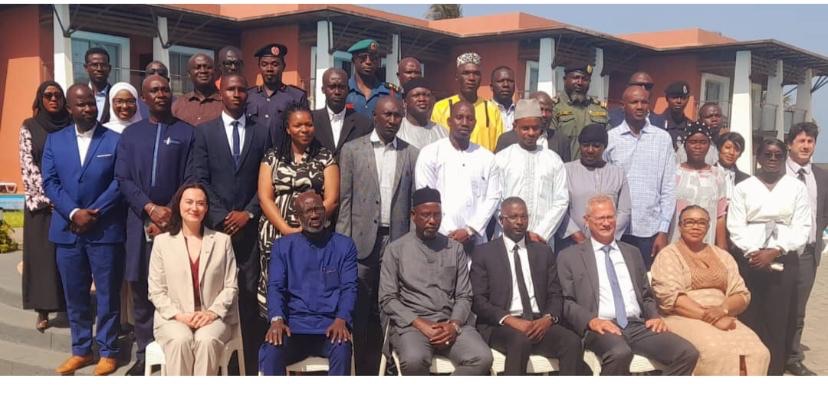By: Kemo Kanyi
The Office of the National Security Council and the National Assembly Standing Committee on Defence and Security Tuesday met to discuss and draft the National Security Council Bill.
Aboubacarr Suleiman Jeng, the National Security Adviser, described the bill as a bedrock of the ongoing security sector reform.
“The drafting of the Bill and its subsequent enactment will herald a journey towards rebuilding the ability of the nation’s security to enhance national security,” Mr. Jeng noted.
He said the provisions in the bill strategise plans for national security, individual safety, and new human-centered security.
“Notably, the national security policy of The Gambia identifies as a national aspiration for The Gambia to be a nation that will have a professional and apolitical security system able to protect the country and its people in line with fundamental human rights and rule of law. The Bill alludes to similar ideals of guaranteeing the protection of rights and liberties as enshrined in the constitution of The Gambia,” he noted.
According to the national security adviser, this sensitisation reaffirms the government’s commitment and implies a demonstration of leadership and political will on the ongoing SSR process.
Seedy SK. Njie, deputy speaker of the National Assembly and chairman of the NA Standing Committee on Defence, the bill represents a giant step towards strengthening the national security architecture.
“The draft National Security Council Bill represents a significant step forward in our efforts to enhance the coordination and effectiveness of the national security apparatus. This Bill seeks to establish a robust framework for a well-structured and coordinated national Security Council, ensuring that our security strategies are comprehensive, inclusive, and to the evolving threats and challenges we face as a country,” he told the stakeholders.
To address the current gaps in coordination among various security agencies, Deputy Speaker Njie said the Bill emphasises the importance of inter-agency coordination and communication.
“As a Committee and Parliament, we recognise that national security is a collective responsibility, and we must commit ourselves to supporting the effective functioning of a national security mechanism for sustainable democracy and development,” he underscored.
German ambassador Klaus Botzet, the ECOWAS ambassador MiattaFrench, and the European Union representative Enya Braun all affirmed their support to see the Bill successfully enacted.
The Office of National Security was established in 2017 by President Adama Barrow with the ultimate objective of improving the security sector response to the needs of the inhabitants of The Gambia.





